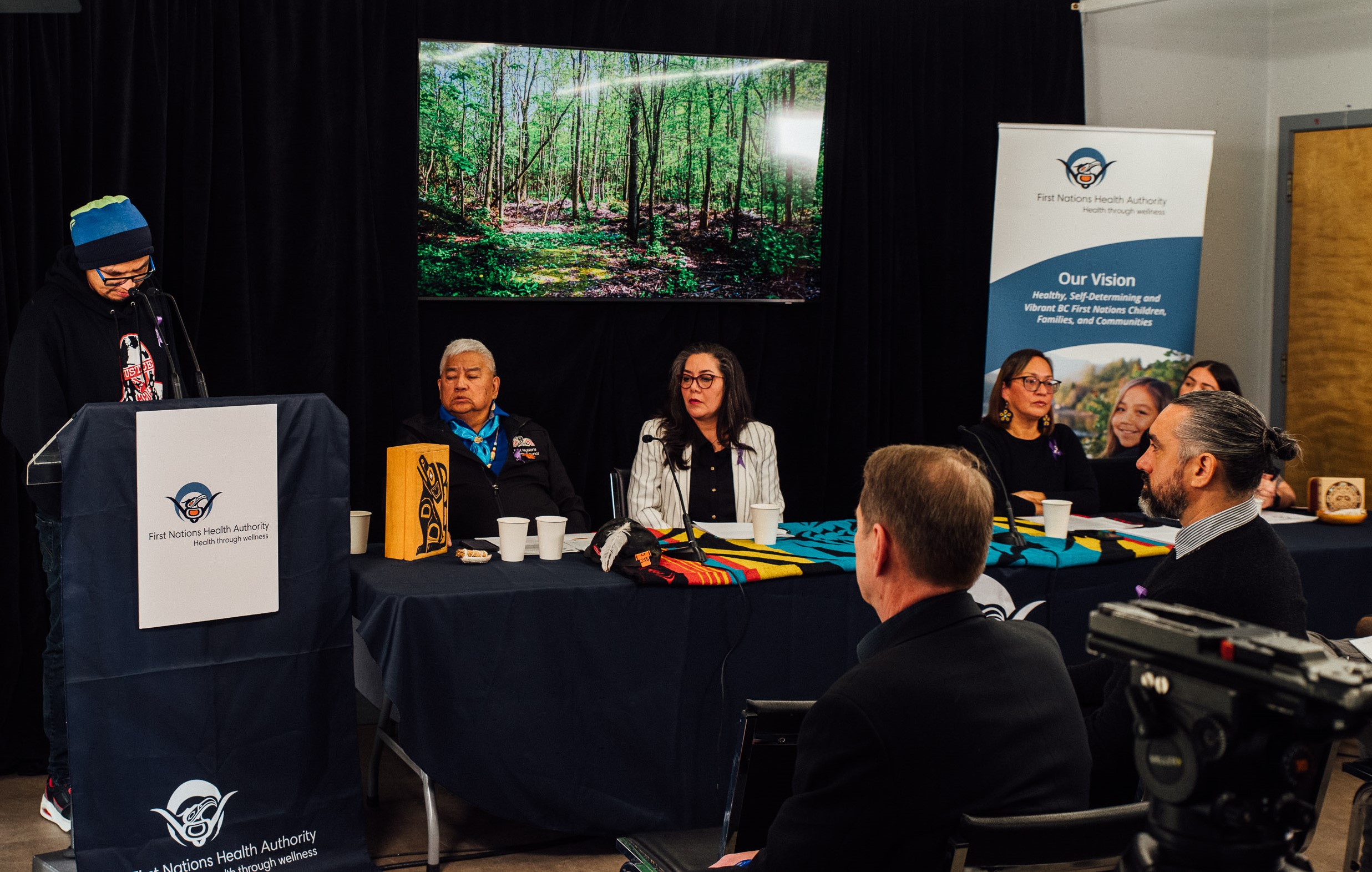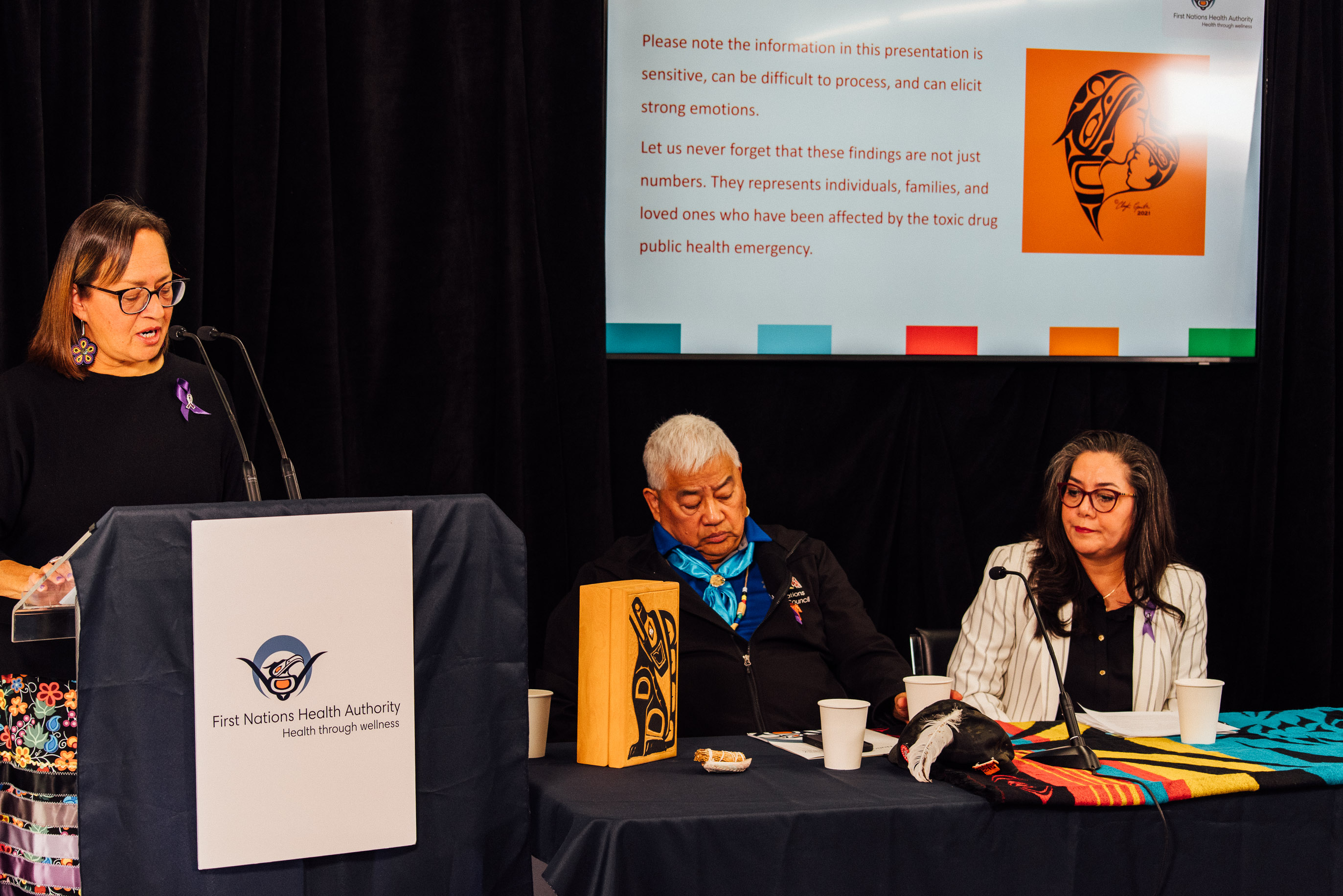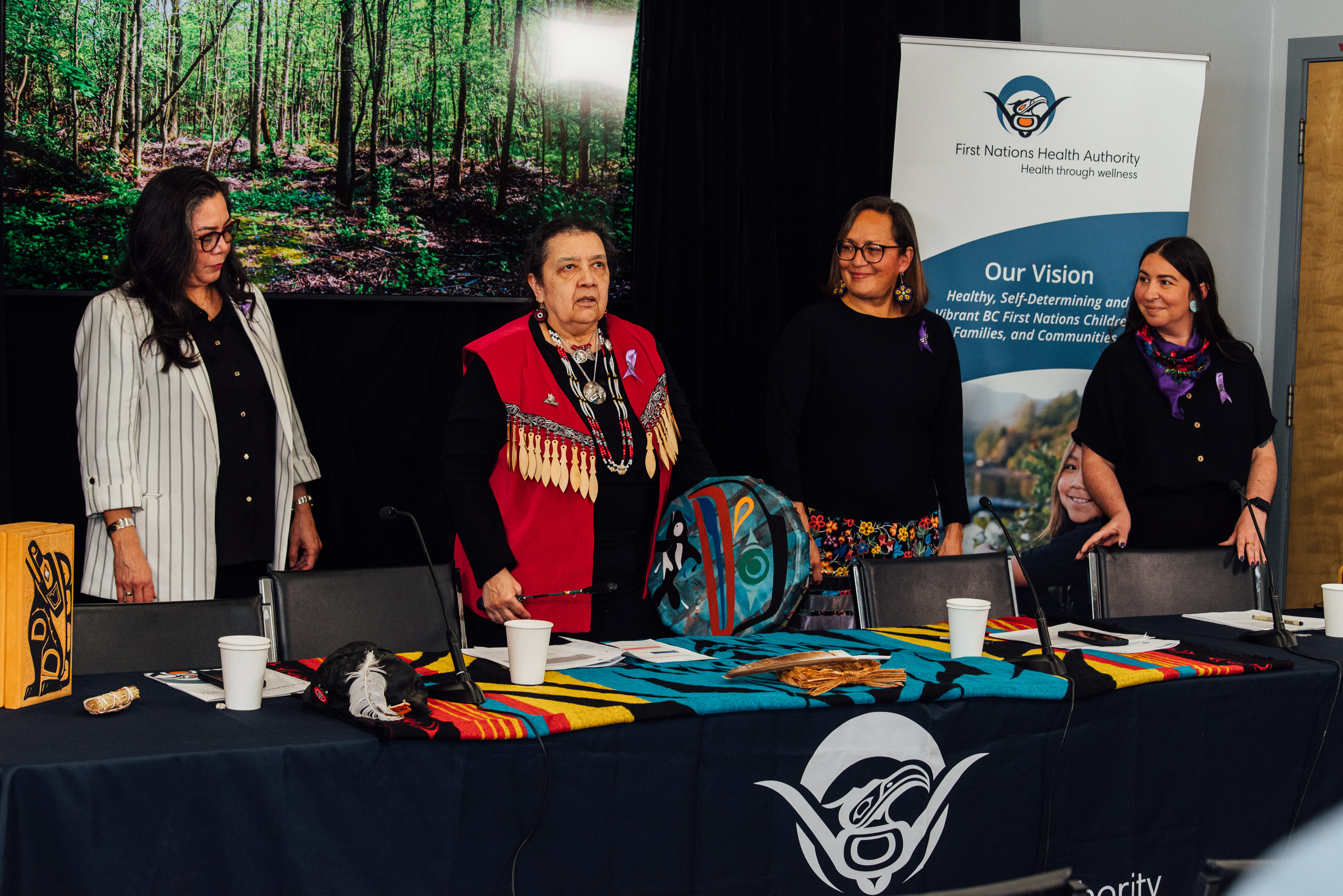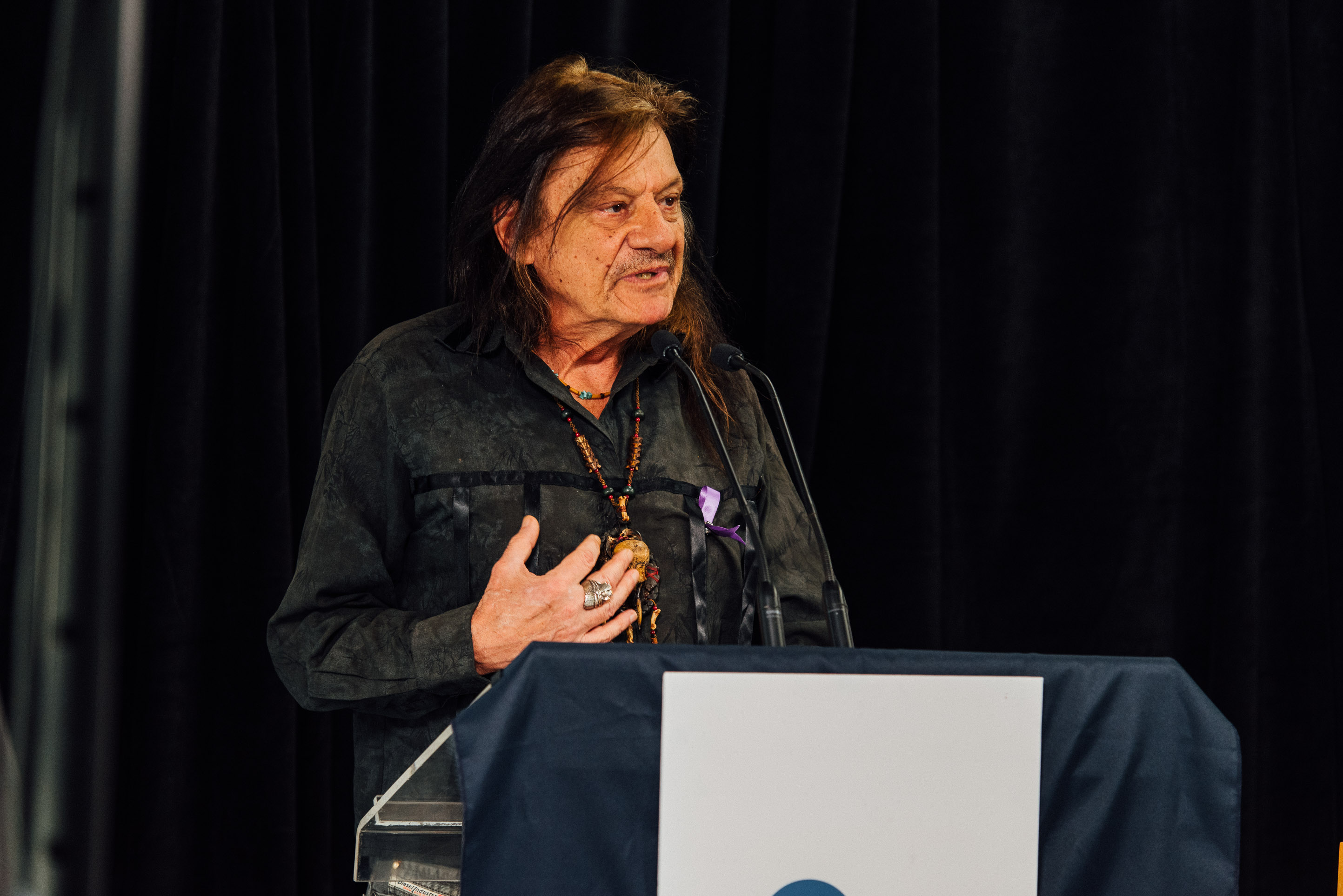
Unceded territories of the xʷməθkʷəy̓əm (Musqueam), Sḵwx̱wú7mesh (Squamish) and səlilwətaɬ (Tsleil-Waututh) Nations | VANCOUVER – The 2024 First Nations specific data for toxic drug poisoning events and deaths in BC released by the First Nations Health Authority (FNHA) shows a 6.8 per cent decrease in toxic drug poisoning deaths and a 8.6 per cent decrease in toxic drug poisoning events in 2024 compared to 2023, indicating that continued harm reduction initiatives are more important than ever.

“The data is encouraging — it shows the progress being made to keep First Nations people, families, friends, and communities across BC safer from toxic drug poisonings, said
Dr. Nel Wieman, Chief Medical Officer at FNHA.
The toxic drug public health emergency affects us all, and we must continue and expand our harm reduction efforts as the data tells us that they are helping.
The FNHA will continue to provide culturally-safe, First Nations harm reduction supports for First Nations communities across BC."
The data also demonstrates that First Nations people in BC continue to be disproportionately impacted by the toxic drug crisis. In 2024, 427 First Nations people across BC died from toxic drug poisonings — a 6.8 per cent decrease from the 458 who died in 2023. However, First Nations people died at 6.7 times the rate of other BC residents due to toxic drugs in 2024. This disparity between First Nations people and other BC residents is the largest it has been since the Province declared the toxic drug crisis a public health emergency in April 2016.
The 2024 data also reveals an 8.4 per cent decrease in toxic drug poisoning events in BC experienced by First Nations people in 2023. First Nations people experienced 3400 toxic drug poisoning events, compared to 3713 events in the previous year. Between January 2018 and December 2022, 1,374 First Nations people in BC died from toxic drug poisonings. During the same period, an FNHA modelling research project showed that at least
1,024 (43%) potential deaths were averted due to evidence-informed, harm reduction initiatives and education across the province.

The toxic drug crisis is a public health crisis. We know that evidence-based, community-led, harm-reduction practices saves lives," said Celeta
Cook, Executive Director for Public Health Response at FNHA. “We need to continue to support and expand initiatives that are helping First Nations people – response efforts that are grounded in culture, self-determination, and our perspective on health and wellness. Each person who died as a result of a toxic drug poisoning represents a tremendous loss to First Nations families and communities. We extend our condolences to those grieving the loss of loved ones and raise our hands to those on the front lines caring for our relatives."
The FNHA responds to the unique needs of communities across BC to ensure that support is both effective and culturally-safe. FNHA will continue to deliver a continuum of mental health and wellness supports, in partnership with First Nations communities, Chiefs, health leaders, peer workers, health-care frontline staff and other provincial partners.

Quick Facts:
In 2024, the FNHA supported:
- 105 harm reduction grants of up to $50,000
- The distribution of 5,426 nasal naloxone kits to 112 First Nations communities
- 379 people in completing the Not Just Naloxone training course
- 4,041 First Nations people in accessing opioid agonist therapy
- 1,742 virtual sessions with psychiatrists and addictions specialists through the First Nations Virtual Substance Use and Psychiatry service
Learn More:
The FNHA's “Increase the Support. Reduce the Harm." video series features Indigenous people talking about harm reduction and the impact of toxic drugs in their lives and the lives of their loved ones.
- First Nations Youth Harm Reduction Campaign
The FNHA will launch an awareness campaign in May, to support First Nations youth to have courageous and compassionate conversations about substance use. Resources for the campaign, including a new toolkit titled 'With Open Arms: Supportive Conversations Among Friends,' are intended to address the need for accessible information on substance use prevention, harm reduction, wholistic wellness and keeping friends close in conversation about substance use.
Key aspects of Harm Reduction for BC First Nations include relational practice, wholistic health, drawing on the ancestral strengths of culture, community, and kinship and respecting an individuals' needs, priorities, and autonomy in their healing journey.
The FNHA encourages First Nations people to learn more about the FNHA Healing Indigenous Hearts facilitators' guidebook, which is a resource for those wishing to establish peer groups to support Indigenous peoples and families that are navigating grief and loss related to the harms from substance use.
A Framework for Action: Responding to the toxic drug crisis for First Nations captures a system-wide response to slow and stop toxic drug death. The Framework for Action is focused on the most urgent goal of preventing deaths while also supporting First Nations people on their healing journeys.
Media Contact
First Nations Health Authority
Media Relations
778-984-5962
media@fnha.ca

